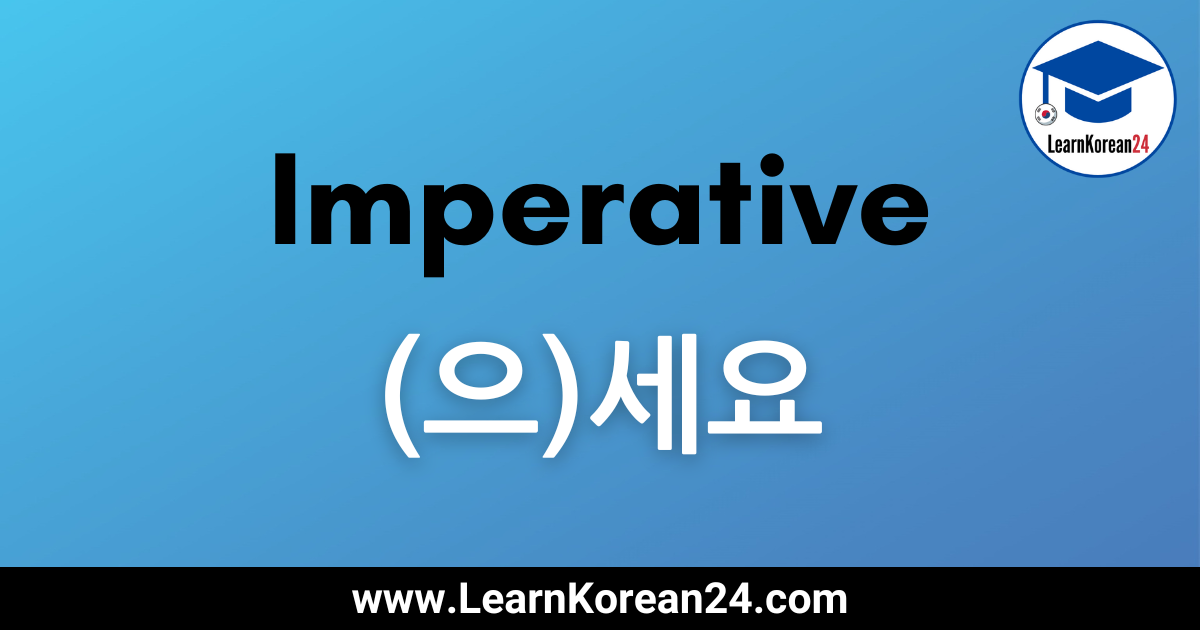Korean Imperative Sentences With (으)세요
When you want to tell someone to do something in Korean you must use imperative sentences. If you’re not sure what imperative sentences are, they are sentences used to give a command, instruction, or to make a request. In this Korean lesson, you will learn how to make sentences using the Korean imperative form ~ (으)세요.
Korean Imperative Form ~ (으)세요
In a previous lesson, we covered how to say ‘Please give me’ In Korean which is 주세요. To review, 주세요 is made up of the verb 주다 (to give) plus the polite imperative ending ~(으)세요. As ~(으)세요 is the polite imperative form, it means ‘please (do)’ when attached to a verb.
Conjugation Rules
With verb stems that end in a consonant add ~으세요
Examples:
앉다 = to sit
앉으세요 = please sit
읽다 = to read
읽으세요 = please read
With verb stems that end in a vowel add~세요
Examples:
오다 = to come
오세요 = please come
가다 = to go
가세요 = please go
청소하다 = to clean
청소하세요 = please clean
EXCEPTIONS – Irregular Verbs Ending In ㄹ
Verbs ending in ㄹ are all irregular verbs and so they do not follow the regular conjugation rules. To add ~(으)세요 to a verb ending in ㄹ, you must drop ㄹ from the verb stem and then add ~세요. Let’s look at some examples.
만들다 = to make
만드세요 = please make (it)
팔다 = to sell
파세요 = please sell (it)
Check out our lesson on Irregular ㄹ Verbs to learn more about how to conjugate these verbs.
Korean Imperative Sentences
Here are some useful example sentences using ~(으)세요.
열심히 공부하세요.
(Please study hard.)
수민 씨, 잘 쉬세요.
(Sumin, please rest well.)
빨리 들어오세요.
(Please come in quickly.)
자리에 앉으세요.
(Please sit on your seat.)
조용히 하세요.
(Please be quiet.)
책을 펴세요.
(Please open your book.)
STUDY ONLINE WITH KOREAN ARAH!
Ready to take your Korean to the next level?
Get One-on-One Korean lessons from a qualified and experienced Korean language tutor!

